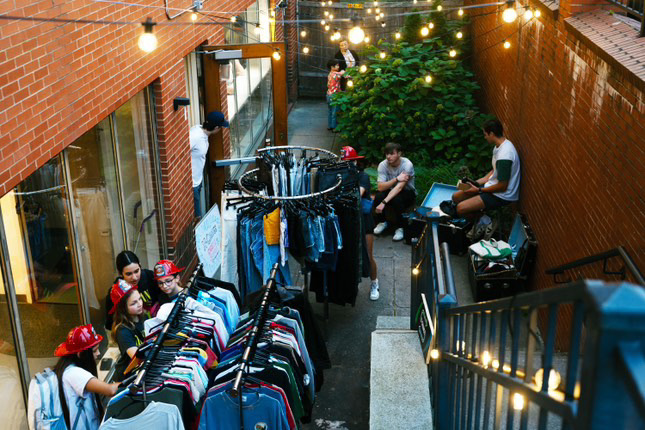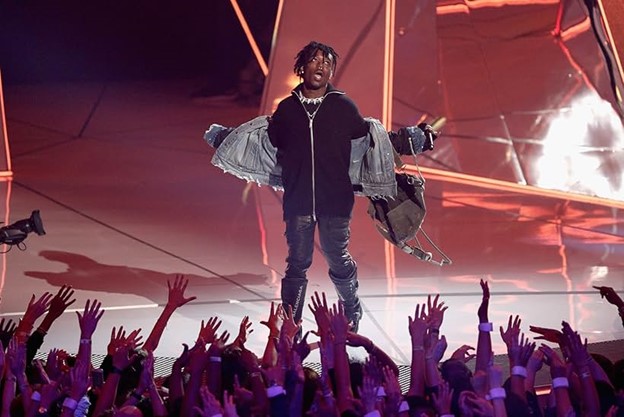
If you’ve heard of Azealia Banks, you likely fit in one of three camps: diehard fan, only familiar with viral hit “212,” or critic who considers her more of a troublemaking Twitter personality than a rapper.
The third group saw an unfortunate growth this past year as Banks, barred from releasing music by yet another sour record deal, unwittingly allowed an intensified focus on her brash online personality while offending politics and public scandals. Her current top Google results are not for music, but a public quarrel she had while in court for a different altercation.
Despite the endless gossip, any discussion on Banks is always underscored by one fact: past the feuds and public display, Banks is a genuine talent. She’s arguably the first female mainstream performer since Missy Elliott to display equal versatility as both a singer and rapper. Her critically lauded 2014 debut “Broke with Expensive Taste” pulled the impressive double feat of sounding current despite nearly two years of shelving, and producing tracks strong enough to satisfy waiting fans.
New mixtape “Slay Z” does not have the same air of grandiosity as “Broke.” There aren’t any show-stopping moments or deep concepts like the Spanish breakdown of “Gimme a Chance” or the character study of “Wallace.” In fact, “Slay Z” exudes an immediacy that is somewhat new for Banks. Where “Broke” was a painting whose intricacies appear over time, “Slay Z” lays it all out, a musical embodiment of its bare-all cover art.
“Slay Z” follows the identity crisis sequencing of Nicki Minaj’s “Pink Friday: Roman Reloaded,” which devoted its first half to hard hitting rap and its second to club-ready dance euphoria. Like “Roman Reloaded,” there’s something of a compartmentalization effect, but Banks sounds equally comfortable in either set, and the genre splitting allows her to deftly run her full range of talents and emotions.
In “You should be lucky I even acknowledge you” she initially snarls on the rapid fire verse of “Can’t Do it Like Me,” but two songs later she goes full on house diva for the tearful but criminally short “Used to Being Alone.” “It took so long to get over you,” Banks emotes, but even here there’s a hint of her usual troublemaking: the song not so subtly lifts the same sample rival Iggy Azalea used for “My World.” Banks’ vocals, leagues above Azalea’s skillset, manage to claim the sample as her own.
The winner of the tape’s first half is “Skylar Diggins,” which brings the dance-trap hybrid Banks occasionally flirts with to dizzying new heights. Racing synthesizers readymade to soundtrack any WNBA game simulate movement as Banks effortlessly switches between tense four-on-the-floor delivery and syncopated flow.
During “I’m feeling like Jean Grey,” she grins halfway in. No wonder she’s bending the instrumental to her will. Her first single “The Big Big Beat” dominates the tape’s dance section, and while it’s far from the first time she’s been indebted to ‘90s house, and specifically Crystal Waters, it’s the first time she has so unrestrictedly embraced the style, accounting as her most beatific, unreserved single to date.
Mixtapes commonly carry the connotation of containing material that’s unsuitable for radio play, but “Slay Z” moves in the opposite direction, tapping directly into the pop and rap influences that seemed only referential on “Broke.” This doesn’t always work in the tape’s favor, and it sometimes causes Banks to lose grasp of the unique aesthetic that separated her from the pack. It’s somewhat apparent on trap throwaway “Big Talk,” but most glaring on the Nina Sky assisted opener “Riot,” which sounds like the Icona Pop grade young and rebellious declaration that Banks always had the keen intuition to avoid.
“Queen of Clubs” is a more successful take on that style. Instrumentally, it’s just a notch above the inseparable songs on the back half of “Roman Reloaded,” but Banks fills out the track nicely, laughing at her scandals and even telling off some critics. “Every time I step in the club it’s a problem, it’s crazy,” she winks, before listing off the reasons she doesn’t care. Among them, a deliberate mispronunciation of Versace (“Ver-SAY-see”) that’s still funny after the fifth listen. At this point, no one’s expecting an apology from Banks, but at least “Queen of Clubs” is a danceable affirmation of that fact.
“Slay Z” is the first of three projects Banks has promised this year, and if closer “Along the Coast,” which doubles as a preview of this summer’s “Fantasea II: The Second Wave,” is any indication, her upcoming material may return to the lush, conceptual writing that punctuated much of her previous work. Until then, “Slay Z” is a stunning reminder of Banks’ musical prowess: no one can do it like her.
William Doolittle can be reached at [email protected].


















